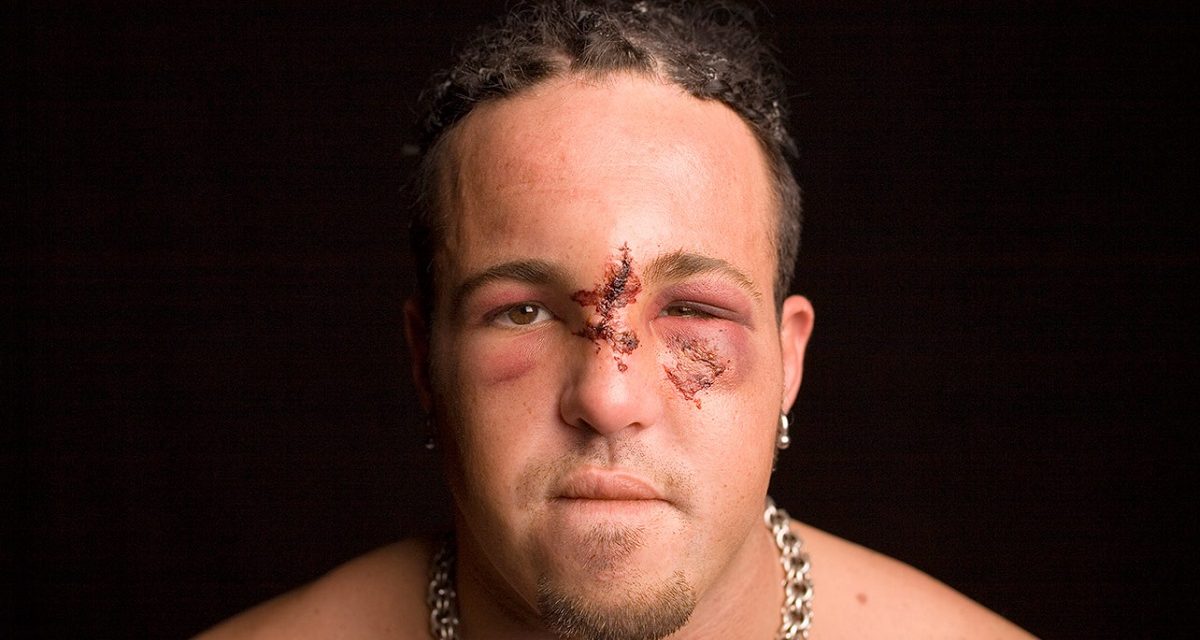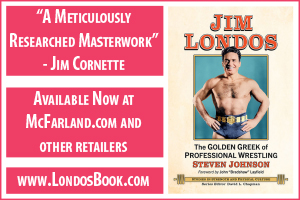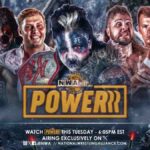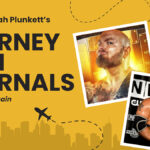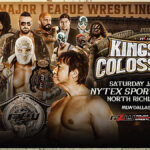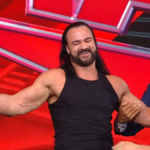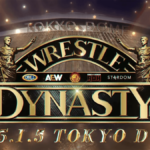“I just try and give 110% percent; I’m just happy to be a part of the team; we’ll just take it one game at a time.” Sports clichés are usually handed out like candy in interviews, leaving reporters with gut-rot instead of a feeling of being well-fed. Imagine this writer’s surprise when the first words out of Joey Matthews’ mouth were “I went to rehab in 2006, and missed five to six months of work due to my drug and alcohol problems.”
Matthews is, of course, the former Joey Mercury of MNM with Johnny Nitro (now John Morrison) and Melina in World Wrestling Entertainment. He was talking with Slam Wrestling backstage at Buffalo’s Ballpark Brawl at the end of the summer, getting ready for his first-ever match with 2 Cold Scorpio. Not wanting to end the interview before it started, I asked how much he was willing to talk about his then-recent release from the WWE. He answered by diving right into his sordid history with drug addiction and missed opportunities.
After his six-month treatment in rehab, Matthews claims that he “came back a little too early,” adding that it was himself that put the pressure on for an early return. “I was lying to them because I wanted to get back so soon.” Not long after his return, MNM started their popular feud with Matt and Jeff Hardy, a storyline that Matthews says had been stalled on previous attempts to bring the two teams together in the ring.
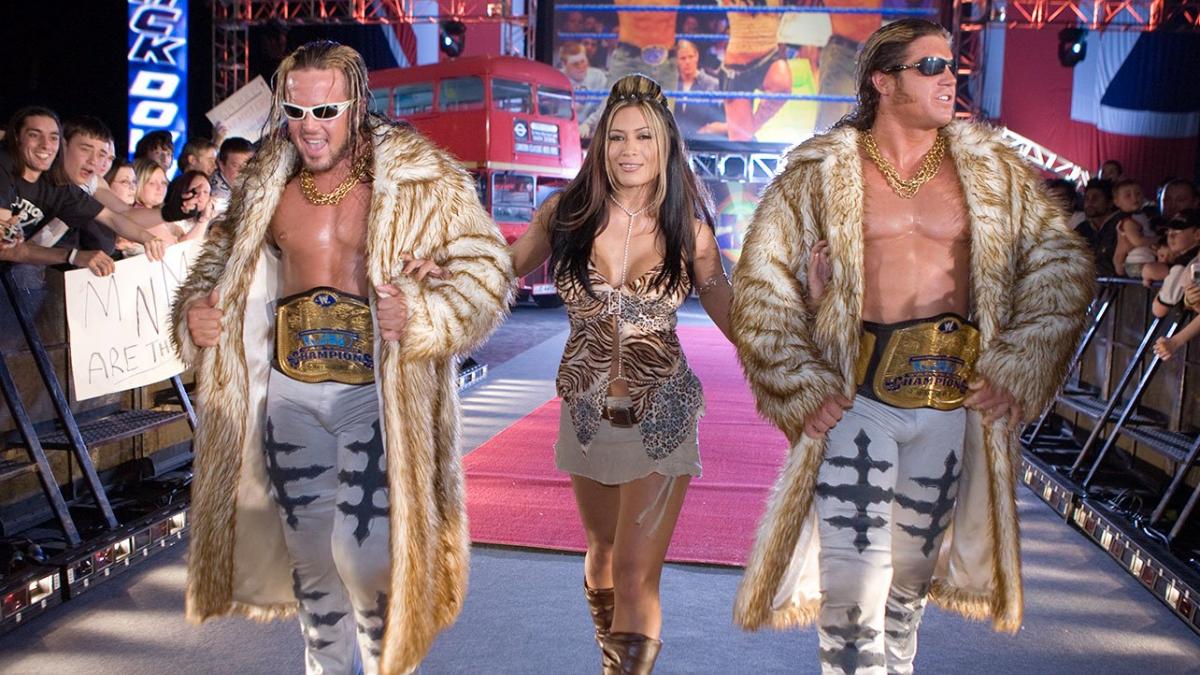
Matthews during a championship run as a part of MNM. Photo: WWE
“We did some stuff with Matt Hardy and Tatanka on Smackdown,” Matthews recalls. “We kept calling Jeff to get him back. Jeff was doing really well and was getting himself straightened out, and he told Matt he’d like to come back for another shot. Then when he came back I went into rehab, so Jeff and Nitro did some work together.” Once Matthews emerged prematurely from rehab, he worked in OVW for a short stint before the Hardys and MNM finally hooked up. “It was a dream match for us,” he remembers fondly. “We had great matches all over the country and all over the world.” Then came, literally, Armageddon.
The December 2006 pay-per-view featured MNM, the Hardys, Dave Taylor and William Regal, and Paul London and Brian Kendrick in a fatal-four-way ladder match. Even any casual wrestling fan with access to the internet has seen the clip several times: both Mercury and Nitro being struck unguarded by the ladder, breaking four bones in Mercury’s face and getting him thirty stitches inside of his mouth. Amazingly, Matthews is nonchalant in recalling the incident.
“I’ve taken shots to the face before,” he says casually. “Nitro escaped with a cut across his shoulder and one across his neck, but I wasn’t so lucky. I get headaches sometimes, but I don’t know if that’s connected because I’ve had over ten concussions too.” As if proving that he is indeed used to playing through pain, as wrestlers always seem to be, Matthews stopped periodically throughout the interview to spit out blood into a styrofoam cup — just another day at the office.
The real impact of the injury from the ladder match, however, was not what forced Matthews to the emergency room — it was in handling the convalescence afterwards. “I wish it didn’t happen,” he says of the injury in his forthright manner. “If it didn’t happen, maybe I wouldn’t have gotten hooked on painkillers.”
The addiction to painkillers added to a history of drug and alcohol abuse that Matthews says goes back for nearly half of his life, when he was just Adam Birch in Virginia. “I’ve been a drug addict and alcoholic since I was 15 years old, right before I started in wrestling — so that’s the better part of 15 years.” Once painkillers got added to his admitted mixture of alcohol, cocaine, crack and heroine usage, Matthews acknowledges that his life became “a mess.”
“I didn’t want to tell anyone that I had a problem,” he says, referring specifically to the addiction to painkillers. “I didn’t want anyone to think that rehab had failed. I didn’t want it to look bad on me because at that time I was on almost every Raw and Smackdown, getting a lot of work and being in a lot of good spots. Then one day, before a taping, I took some pills that somebody handed me — they weren’t prescribed to me. I knew it was wrong but I took them anyway because that’s the nature of the beast.”For the only time in the interview, Matthews is reluctant to get into what these non-prescription drugs were, but he is direct about how they sounded the death-knell for his career at the time in the WWE. “I had to be sent home,” he says. This was not connected with the Wellness Policy, according to Matthews, but came from a direct intervention by Vince McMahon. “Vince sat me down and said ‘We’re not concerned about your work because we know you can pull it together for 30 minutes every night. We’re worried that you’re going to die.'”
This is a new spin on the generally accepted belief that McMahon is willing to run his wrestlers into the ground no matter the cost to their own well-being. It’s especially note-worthy since Matthews is a former employee who, while no doubt is hoping to regain employment with the WWE in the future, would have little reason to hold back his opinion if he thought the WWE was responsible for his troubles. “The WWE gave me every opportunity to get better and I’m the one who fucked up,” he mutters, clearly holding himself accountable in body language as well as in his words. “I was one of those guys that you’d prop up after a match, put on a plane and just get to the next town. Once my music came on, I was fine.”
It was once the match was over that Matthews now sees was the time that he had little control over his life. “I was going to die,” he says bluntly. “I just turned 28, so in hindsight I’m glad they did it (referring to the WWE’s punishment), but at the time, no — I just wanted to keep on living the way I was living.”
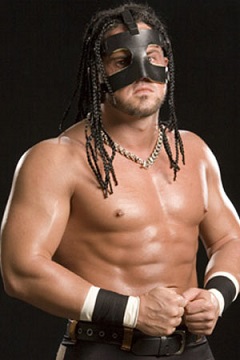
Matthews after Armageddon wearing a protective mask
Now, though, claiming proudly that he’s been “straight ever since” his release, he has a new lease on life. “I’ve overdosed three times and I’ve wrecked ten cars — I’m fortunate to be above ground,” he explains. “But now I’m at the top of my game, and I want to be the comeback of the year.”
Word is that Matthews may make a surprise appearance at TNA’s Bound For Glory pay-per-view on Sunday, if travel arrangements from a tour of Europe can be arranged.
While one admires in a no uncertain way the strength it takes to rebound from the injuries and addictions that had ensnared Matthews, taking him at his word that he is living clean, one also has to question if returning to wrestling is the right thing for him. If a job causes someone so much stress they resort to drugs to keep themselves going, should they return to that job once they’re on the straight and narrow? “This is how I’ve fed myself since I was 16 years old,” Matthews concludes.
For him, as with so many wrestlers, there’s no other choice for them but to get back in the ring. “I shouldn’t be alive, but I’m on my feet and I’ve got another shot.”
